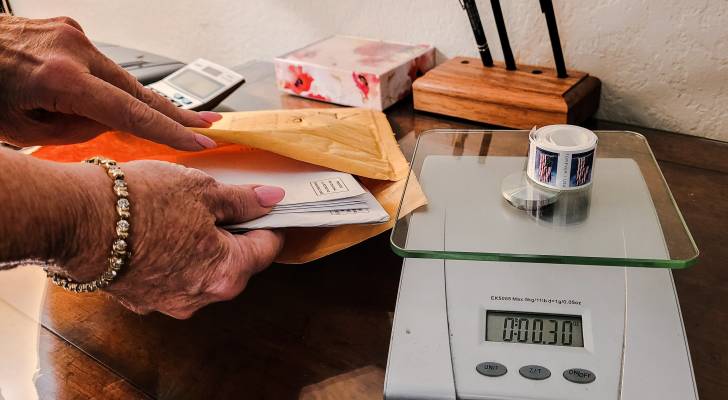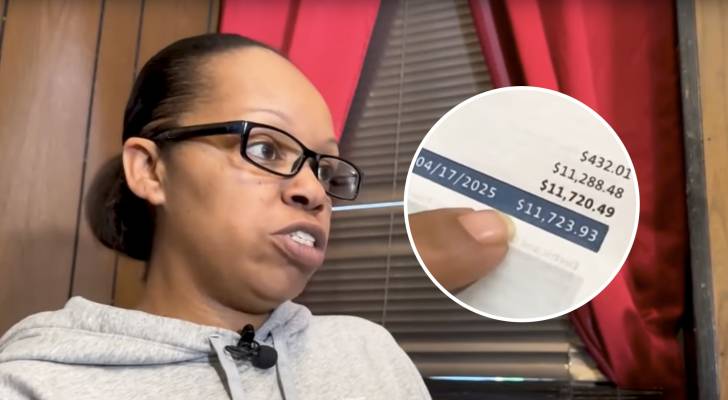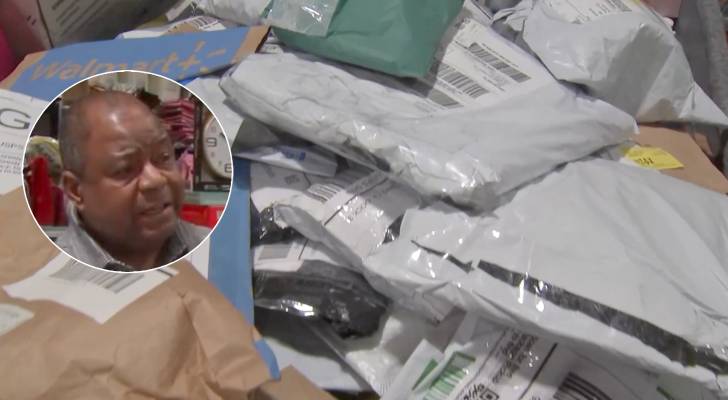California files lawsuit against magazine it says sent out millions of ads designed to look like real bills — in what officials claim was a ‘widespread’ violation of consumer protection laws


California prosecutors have filed a civil complaint in San Diego County Superior Court against Pacific Magazine Billing LP and a network of related entities, accusing them of sending millions of deceptive mailers that misled residents into thinking they owed money for magazine renewals they never ordered. The lawsuit names Pacific Magazine Billing LP, several affiliated […]
‘We’re ready for a fight’: Texas family demands answers after developer bulldozed their childhood home to build a duplex on their land — and one lawyer says this happens more than you’d think
A Central Texas family is devastated and angry after their grandmother’s home was demolished without their consent, reports KVUE. In March 2024, Robert Alexander stopped by the family property at 118 Kimble Lane in East Austin. But the house he expected to see, where he and his brothers were raised, had been bulldozed to the […]
‘She’s dangerous’: Judge bans San Diego woman from her former home after 2 suspicious fires and $200K insurance payout vanishes — neighbors say hoarding, threats and chaos went on for years


A San Diego judge has ordered Lisa Golden to stay at least 100 yards away from her Ocean View Hills home after two suspicious fires and the disappearance of a $200,000 insurance payout reports CBS 8 San Diego. Neighbors say the home on Mariner Drive has been a source of stress and fear for years […]
This Pennsylvania woman got a $12K utility bill — after waiting months for her statement. And lawmakers now say PECO isn’t acting fast enough for the thousands left in a similar situation


Posiey Brown of Norristown, Pennsylvania, was floored when she opened her PECO energy bill in April — totaling $11,723.93 in charges. “There’s no way,” she recalled thinking to CBS News Philadelphia in a story published May 30. It was the first utility bill she had seen in months and much higher than anticipated. Don’t miss […]
Texas woman suing after $83M lottery winnings put ‘on hold’ because she used a ticket app — 2 years after a global gambling group (legally) bought nearly every Lotto Texas ticket to win $95M


A group of international gamblers legally purchased nearly every number combination in a Texas state lottery drawing — a scheme designed to guarantee a win. It worked — and it may be why another woman is now suing the Texas Lottery Commission after being denied her own $83.5 million prize. “I’m being treated as the […]
This woman claims she was attacked and robbed of $20K in Atlanta 3 years ago — and that the police are still keeping her cash in lockup. What to do if the cops hold your possessions hostage


Tamia Sims-Irby says she was pistol-whipped and stabbed while being robbed in Atlanta back in 2022. She was 18 years old at the time. Today, at 21, she says the physical wounds have mostly healed — but she’s still fighting to get back the $20,000 that was stolen from her. “It’s definitely a nightmare,” she […]
This Oklahoma man’s car broke down just 2 miles after filling up — thanks to 5 inches of water in the gas station’s fuel tank. Now he’s fighting to be paid for $2.1K damage it caused his car
April 30 started like any other day for Jonathon Kirkwood. The Oklahoma man was on his way to pick up his daughter from school when he stopped at the eExpress Thunder Plaza Travel Stop on South Choctaw Road to fill up his gas tank. Moments later, he was stranded on the side of the road […]
‘Let’s see what happens’: NYC store goes viral for selling $4 ‘mystery boxes’ — but some packages come with an extra shocking surprise. Here’s what you need to know to protect yourself


A dollar store in the Bronx has gone viral after a TikTok video showcased its $4 “mystery packages.” The boxes, which contain returned merchandise from retailers like Amazon, Walmart and others, can hold anything from brand-new sandals to toilet plungers. The thrill of the unknown is part of the appeal — and business is booming. […]
This Florida couple says they paid a landscaper $27K to transform their yard — but all they got was some dead grass. Now, they’re suing and warning others to avoid falling for slick scammers


Nick and Susan Perfido of Seminole County, Florida, were looking forward to transforming their backyard into an outdoor paradise. They hired Florida Landscape Living LLC, a company based in Maitland, to do the job. “We’re going to have a fire bowl here — actually a fire table,” Nick told WESH 2 News while showing reporters […]
Canadian man gets 2.5 years in prison for ‘elaborate scheme’ using his mother’s identity to steal more than $420,000 from Social Security over 30 years. But how common is this, actually?


A Canadian man has been arrested, sentenced to two-and-a-half years in prison and ordered to repay $420,000 he stole in Social Security benefits over a 30-year period, the U.S. Attorney’s Office in Alaska said in a news release May 12. Ellis Kingsep, 77, was legally living in the U.S. and used an "elaborate scheme" to […]